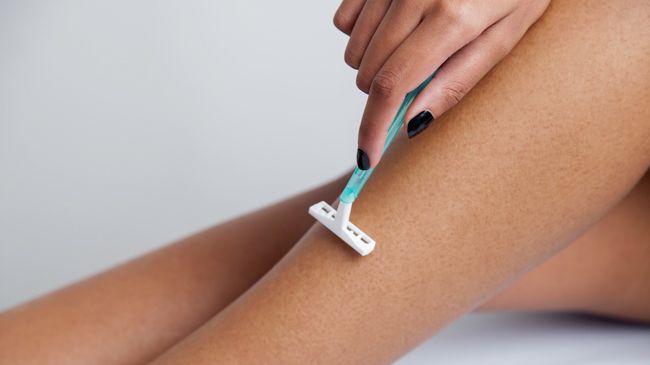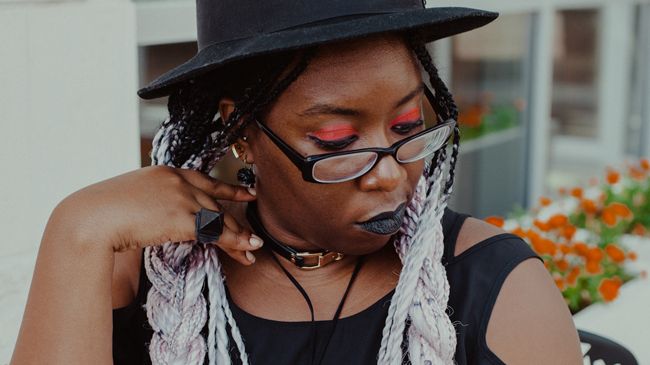
“You are not ‘pretty for a black girl’. You are beautiful period.”
Strong words there. And true words!
June 20th marked the launch of “The Talk”, an original video component of the Procter & Gamble sponsored “My Black is Beautiful” campaign. While the ladies of MBB are producing other content, our Market Insights guru Amanda shared their video “The Talk” in our company Slack channel, and it struck a chord. And made me cry. If you’re at work, or wearing a lot of eye-makeup, you’ve been warned.
This is great, right?
The video lays it all out—black parents through the decades until now have had to tell their children about how the deck is stacked against them for their looks and ancestry, and what they have to do to navigate the injustices they’ll inevitably face. It’s something that most black families in America already know, but seeing the conversation in a well produced, thoughtfully executed, easily shareable form is amazing. I think.
Truth be told, I’m conflicted.
On one hand, it is absolutely absolutely a blast of imported Scandinavian air in the face kind of refreshing to see brands speaking frankly and openly about racial issues. The video doesn’t mince any words, cast any non-black actors to spread vagueness, or cut any corners in portraying pervasiveness of anti-black racism, nor of excessive policing and state-sponsored racial violence in America through the decades. And I appreciate that! Subtlety in conversations like these only serves to coddle the people already in a place of power. Imagine an ad about the supporting our LGBTQIA communities that referenced a gay couple as ‘special friends’ or a commercial addressing domestic abuse against women that emphasized that every victim could ‘leave at any time’? To be fair, odious as those hypotheticals are, it’s not actually that hard to imagine. We can barely even have an honest visual conversation about leg hair removal for goodness sakes.
That’s not how this works! That’s not how ANY of this works!
On the other hand, do you ever get kind of suspicious when brands start talking about social issues to begin with? Going back to the LGBTQIA community, I’ve been reading about the effects of pink washing (a reference to the pink triangles used as labels during the horrors of the Holocaust”> this past Pride Month. In essence, it’s slapping a rainbow on your product and buying ad space at Pride while the owners at the top of whatever company owns that particular brand continue to back legislation that actively harms the same people they were just cozying up to. Yes, companies have begun to recognize community dollars. But do they recognize the community itself? And of course the same goes to any minority group, in this particular instance, the black American community (though that isn’t to say these groups don’t intersect”>.
“This is not about you being a good driver. This is about you not coming home.”
If you’re newer to my little corner of the internet, you might not know, but I’m preeeeeeeeetty big on media representation. And advertisements, while they’re improving, are no stranger to erasure of minorities (along with the amplification of other ridiculous stereotypes, but that’s another article”>. Much like other media, they should be structured to reflect the diversity of our world. However, unlike movies, video games, or books, advertisements literally only exist to make money. Their artistry very much comes second in every possible iteration—hence why there are no “indie advertisements” like there are indie films or plays.
“This non-sponsored community theatre Geico musical is actually pretty good…” said no one ever.
So since this is all a tool to get people talking about these brands, however indirectly, does this level of apparent sincerity surrounding the conversation count for anything?
I say…yes.
It’s a tentative yes. It’s a yes said with the knowledge of the crony capitalism, elitism, and racism that impact the ways business is conducted and people are treated in this country. However, this video is an acknowledgement. Someone looked at the pain in black America has faced and IS facing and said ‘This is worth talking about and worth putting money behind’. And more importantly than the recognition, these videos, and in fact the entire My Black is Beautiful campaign, function as conversation starters. These are going to help people that can’t quite find the words to express the issue every time it comes up, and be a light to someone that feels like they’re being shut down by everyone else around them. High school age April could have used this, quite honestly.



